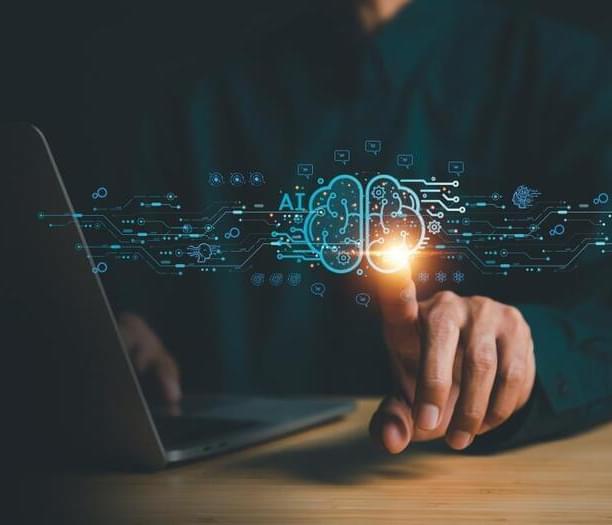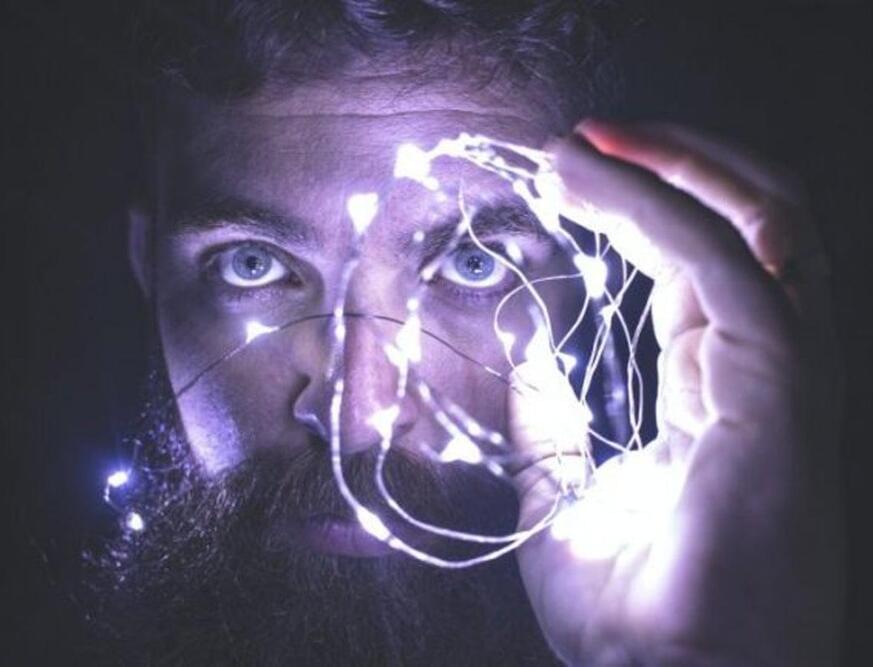Using ChatGPT can put you on the path to becoming a millionaire, according to a YouTube video from personal finance expert Jaspreet Singh.
Category: finance – Page 49

Natural Language Programming AIs are taking the drudgery out of coding
“Learn to code.” That three-word pejorative is perpetually on the lips and at the fingertips of internet trolls and tech bros whenever media layoffs are announced. A useless sentiment in its own right, but with the recent advent of code generating AIs, knowing the ins and outs of a programming language like Python could soon be about as useful as knowing how to fluently speak a dead language like Sanskrit. In fact, these genAIs are already helping professional software developers code faster and more effectively by handling much of the programming grunt work.
Two of today’s most widely distributed and written coding languages are Java and Python. The former almost single handedly revolutionized cross-platform operation when it was released in the mid-’90s and now drives “everything from smartcards to space vehicles,” as Java Magazine put it in 2020 — not to mention Wikipedia’s search function and all of Minecraft. The latter actually predates Java by a few years and serves as the code basis for many modern apps like Dropbox, Spotify and Instagram.
They differ significantly in their operation in that Java needs to be compiled (having its human-readable code translated into computer-executable machine code) before it can run. Python, meanwhile, is an interpreted language, which means that its human code is converted into machine code line-by-line as the program executes, enabling it to run without first being compiled. The interpretation method allows code to be more easily written for multiple platforms while compiled code tends to be focused to a specific processor type. Regardless of how they run, the actual code-writing process is nearly identical between the two: Somebody has to sit down, crack open a text editor or Integrated Development Environment (IDE) and actually write out all those lines of instruction. And until recently, that somebody typically was a human.

The World’s Financial Architecture Is Failing Africa
The United Nations Secretary General, António Guterres, recently sounded an ominous alarm bell. The Sustainable Development Goals, which aim to significantly reduce poverty around the world and create a better quality of life for all, are off track, he warned.
And so French President Emmanuel Macron called a global conference in Paris this month to address getting the 2030 SDG targets back on course. As world leaders from Barbados to Kenya to Germany gather, there are seven things they must focus on. This blueprint for prosperity is too important to let slide.

Tesla discounts Model S/X $8,000, plus 3 years of free Supercharging in end-of-quarter push
Tesla has added a discount to the new inventory of Model S and Model X vehicles and three years of free Supercharging for deliveries by the end of the quarter.
With the end of the quarter approaching, Tesla is looking to deliver better-looking financial results by not ending it with many vehicles in inventory.
To achieve this, Tesla has regularly applied special discounts or incentives to take delivery of new inventory vehicles by the end of the quarter.


Technology For Technology’s Sake Is The Downfall Of The CIO
A unique use case for AI is around enhanced transaction monitoring to help combat financial fraud. Traditional rule-based approaches to anti-money laundering (AML) use static thresholds that only capture one element of a transaction, meaning they deliver a high rate of false positives. Not only is this hugely inefficient, but it can also be very demotivating for staff. With AI, multiple factors can be reviewed simultaneously to extract a risk score and develop an intelligent understanding of what risky behavior looks like. A feedback loop based on advanced analytics means that the more data is collected, the more intelligent the solution becomes. Pinpointing financial crime becomes more efficient and employees also benefit from more free time to focus efforts on other areas of importance like strategy and business development.
Thanks to its ever-increasing applications to evolving business challenges, regulators and financial institutions can no longer turn a blind eye to the potential of AI, with the power to revolutionize the financial system. It presents unique opportunities to reduce the capacity for human error, costing highly regulated industries billions each year.
What’s clear is that some technologies will, over time, become too difficult to ignore. As we saw with the adoption of the cloud, failure to embrace innovative technologies means organizations will get left behind. The cloud was once a pipedream, but now it’s a crucial part of all business operations today. Businesses implemented (or are in the process of implementing) huge digital transformation projects to migrate business processes to the cloud. Similarly, new organizations will kickstart their businesses in the cloud. This is a lesson that technologists must remain alert and continue to keep their finger on the pulse when it comes to incorporating fresh solutions.

It’s Alive? This Billionaire Funds Startup Growing Brain Cell ‘Biocomputers’
Billionaire investor Li Ka-Shing is funding a new technology that can potentially rival artificial intelligence (AI) by using brain cells blended with computers in a technology it calls DishBrain.
Peter Thiel, Mark Cuban and Warren Buffet funded early-stage startups and made millions. You don’t need to be a well-connected billionaire to do the same. Click here to invest in promising startups today.
This science fiction-sounding tech comes from Australian biotech firm Cortical Labs. The company recently raised $10 million in a round led by Horizons Ventures, the investment vehicle of the 94-year-old Ka-Shing, the richest person in Hong Kong. Additional investors included Blackbird Ventures, an Australian venture capital (VC) fund; In-Q-Tel, the investment arm of the Central Intelligence Agency; U.S. firm LifeX Ventures; and others.
Triage Cancer Presents: Supporting Caregivers
Caregivers of individuals with cancer likely have concerns about employment rights, finances, and support. This video will provide some options to support cancer caregivers.
Could One Physics Theory Unlock the Mysteries of the Brain?
The ability of the phenomenon of criticality to explain the sudden emergence of new properties in complex systems has fascinated scientists in recent decades. When systems are balanced at their “critical point,” small changes in individual units can trigger outsized events, just as falling pebbles can start an avalanche. That abrupt shift in behavior describes the phase changes of water from ice to liquid to gas, but it’s also relevant to many other situations, from flocks of starlings on the wing to stock market crashes. In the 1990s, the physicist Per Bak and other scientists suggested that the brain might be operating near its own critical point. Ever since then, neuroscientists have been searching for evidence of fractal patterns and power laws at work in the brain’s networks of neurons. What was once a fringe theory has begun to attract more mainstream attention, with researchers now hunting for mechanisms capable of tuning brains toward criticality.
Learn more about the critical brain hypothesis: https://www.quantamagazine.org/a-physical-theory-for-when-th…-20230131/
- VISIT our Website: https://www.quantamagazine.org.
- LIKE us on Facebook: https://www.facebook.com/QuantaNews.
- FOLLOW us Twitter: https://twitter.com/QuantaMagazine.
Quanta Magazine is an editorially independent publication supported by the Simons Foundation https://www.simonsfoundation.org/
Quantum Computing in AI (a NEW Era of Technology)
Keep Your Digital Life Private: Stay Safe & Secure Online with NordVPN: https://nordvpn.com/safetyfirst.
Welcome to a thrilling exploration of Quantum Computing in AI! This video breaks new ground in explaining the exciting world of Quantum Computing, its intersection with Artificial Intelligence, and how it ushers us into a revolutionary new era of technology.
In the first segment, we demystify the concept of Quantum Computing. We delve into its complex yet fascinating principles, making it understandable even if you’re a novice in this field. If you’ve ever wondered how quantum bits (qubits) and superposition defy the norms of classical computing, this is your ultimate guide.
Next, we discuss the contrasting differences and functionalities of Quantum Computing Vs Classical Computing. By demonstrating the sheer power and potential of quantum computers, we illustrate why they are the vanguards of the future of computing.
What can a Quantum Computer really do? This question is answered in an intriguing section, where we highlight the extraordinary capabilities of these computing marvels. We also take a peek into quantum supremacy, a unique realm where quantum computers outperform classical ones.
As we move forward, the video explores Quantum Machine Learning, a new paradigm in AI. This exciting field combines Quantum Computing with Artificial Intelligence, pushing the boundaries of what’s possible in data processing, learning, and prediction. It’s a game-changer you can’t afford to miss!
Our journey doesn’t stop there! We also discuss real-world applications of Quantum AI. From healthcare to cybersecurity, finance, and more, learn how Quantum AI is transforming industries with unprecedented efficiency and precision.